Nissan Juke vs Dacia Bigster – Differences & prices compared
Both models have their strengths – but which one suits you more?
Compare performance, efficiency, price and space directly: Nissan Juke or Dacia Bigster?
Costs and Efficiency: Price and efficiency are often the first things buyers look at. Here it becomes clear which model has the long-term edge – whether at the pump, the plug, or in purchase price.
Dacia Bigster has a hardly perceptible advantage in terms of price – it starts at 20600 £, while the Nissan Juke costs 21400 £. That’s a price difference of around 823 £.
Both cars consume an average of 4.70 L per 100 km – no difference here.
Engine and Performance: Power, torque and acceleration say a lot about how a car feels on the road. This is where you see which model delivers more driving dynamics.
When it comes to engine power, the Dacia Bigster has a minimal edge – offering 155 HP compared to 143 HP. That’s roughly 12 HP more horsepower.
In acceleration from 0 to 100 km/h, the Dacia Bigster is barely noticeable quicker – completing the sprint in 9.70 s, while the Nissan Juke takes 10.10 s. That’s about 0.40 s faster.
There’s no difference in top speed – both reach 180 km/h.
There’s also a difference in torque: Dacia Bigster pulls a bit stronger with 230 Nm compared to 200 Nm. That’s about 30 Nm difference.
Space and Everyday Use: Cabin size, boot volume and payload all play a role in everyday practicality. Here, comfort and flexibility make the difference.
Both vehicles offer seating for 5 people.
In curb weight, Nissan Juke is to a small extent lighter – 1274 kg compared to 1425 kg. The difference is around 151 kg.
In terms of boot space, the Dacia Bigster offers noticeable more room – 667 L compared to 422 L. That’s a difference of about 245 L.
In maximum load capacity, the Dacia Bigster performs distinct better – up to 1937 L, which is about 632 L more than the Nissan Juke.
When it comes to payload, Dacia Bigster hardly perceptible takes the win – 467 kg compared to 427 kg. That’s a difference of about 40 kg.
Who comes out on top?
Overall, the Dacia Bigster shows itself to be dominates this comparison and secures the title of DriveDuel Champion.
It convinces with the more balanced overall package and proves to be the more versatile choice for everyday use.
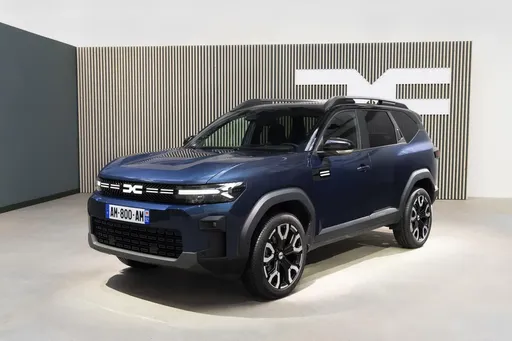
Dacia Bigster
Nissan Juke
The Nissan Juke stands out with its distinctive design and bold styling, making it a popular choice for those seeking something different on the road. Its interior cleverly combines modern technology with comfort, offering an enjoyable driving experience for both the driver and passengers. Despite its compact size, the Juke provides a surprising amount of space and versatility, making it suitable for urban adventures and weekend getaways alike.
details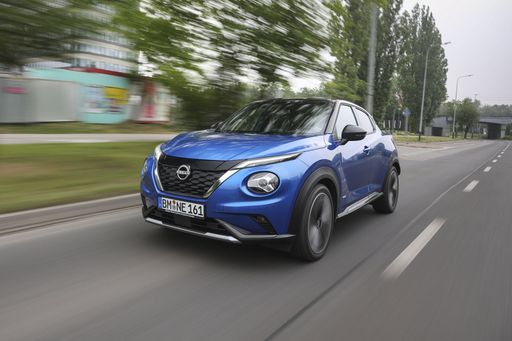 @ germany.nissannews.com
@ germany.nissannews.com
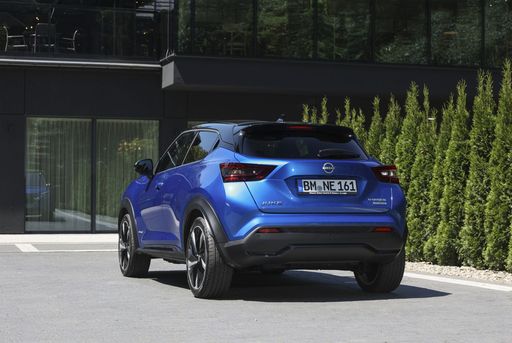 @ germany.nissannews.com
@ germany.nissannews.com
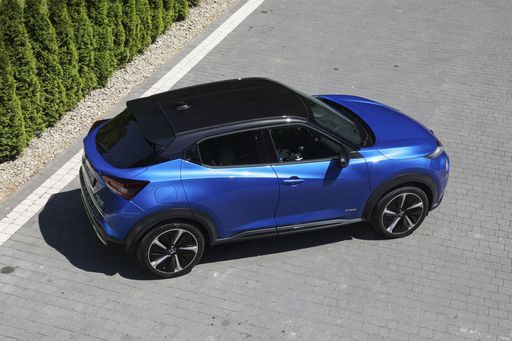 @ germany.nissannews.com
@ germany.nissannews.com
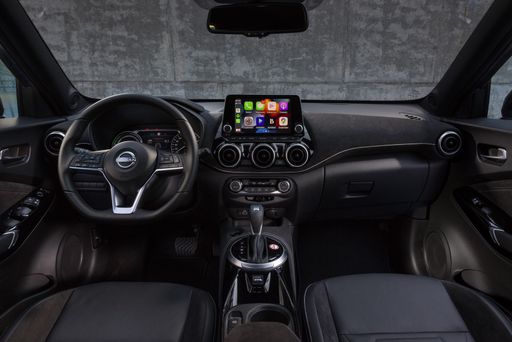 @ germany.nissannews.com
@ germany.nissannews.com
Dacia Bigster
The Bigster is poised to redefine the SUV segment with its bold design and spacious interior, catering to the needs of both families and adventure seekers alike. Emphasizing sustainability and practicality, this model reflects a modern approach to automotive engineering, making it a compelling choice for environmentally conscious drivers. With its striking presence on the road, the Bigster not only captures attention but also embodies a new era of versatile mobility.
details @ media.renault.at
@ media.renault.at
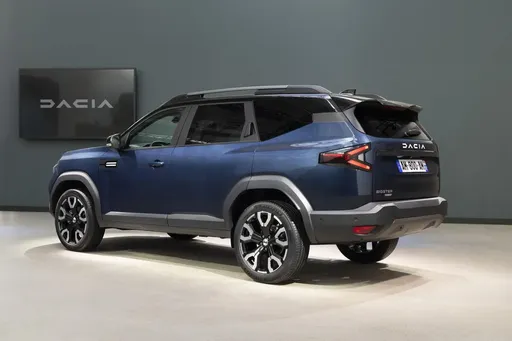 @ media.renault.at
@ media.renault.at
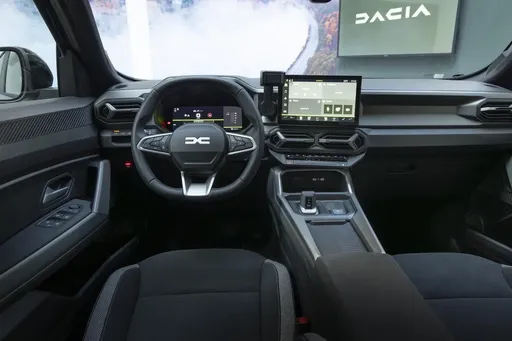 @ media.renault.at
@ media.renault.at
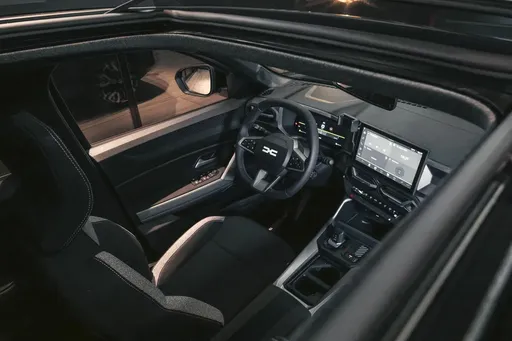 @ media.renault.at
@ media.renault.at
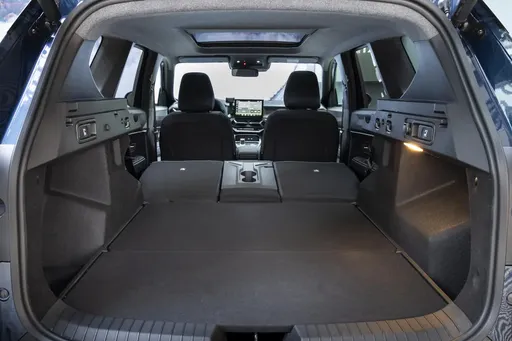 @ media.renault.at
@ media.renault.at

|

|
|
|
|
Costs and Consumption |
|
|---|---|
|
Price
21400 - 30100 £
|
Price
20600 - 26600 £
|
|
Consumption L/100km
4.7 - 6 L
|
Consumption L/100km
4.7 - 7.1 L
|
|
Consumption kWh/100km
-
|
Consumption kWh/100km
-
|
|
Electric Range
-
|
Electric Range
-
|
|
Battery Capacity
0.60 kWh
|
Battery Capacity
-
|
|
co2
107 - 136 g/km
|
co2
106 - 137 g/km
|
|
Fuel tank capacity
46 L
|
Fuel tank capacity
50 - 55 L
|
Dimensions and Body |
|
|---|---|
|
Body Type
SUV
|
Body Type
SUV
|
|
Seats
5
|
Seats
5
|
|
Doors
5
|
Doors
5
|
|
Curb weight
1274 - 1405 kg
|
Curb weight
1425 - 1547 kg
|
|
Trunk capacity
354 - 422 L
|
Trunk capacity
510 - 667 L
|
|
Length
4210 mm
|
Length
4570 mm
|
|
Width
1800 mm
|
Width
1813 mm
|
|
Height
1593 mm
|
Height
1705 mm
|
|
Max trunk capacity
1237 - 1305 L
|
Max trunk capacity
1813 - 1937 L
|
|
Payload
405 - 427 kg
|
Payload
383 - 467 kg
|
Engine and Performance |
|
|---|---|
|
Engine Type
Petrol, Full Hybrid
|
Engine Type
Petrol MHEV, Full Hybrid, LPG
|
|
Transmission
Manuel, Automatic
|
Transmission
Manuel, Automatic
|
|
Transmission Detail
Manual Gearbox, Dual-Clutch Automatic, Automatic Gearbox
|
Transmission Detail
Manual Gearbox, Automated Manual
|
|
Drive Type
Front-Wheel Drive
|
Drive Type
All-Wheel Drive, Front-Wheel Drive
|
|
Power HP
114 - 143 HP
|
Power HP
130 - 155 HP
|
|
Acceleration 0-100km/h
10.1 - 11.8 s
|
Acceleration 0-100km/h
9.7 - 11.2 s
|
|
Max Speed
166 - 180 km/h
|
Max Speed
180 km/h
|
|
Torque
200 Nm
|
Torque
230 Nm
|
|
Number of Cylinders
3 - 4
|
Number of Cylinders
3 - 4
|
|
Power kW
84 - 105 kW
|
Power kW
96 - 115 kW
|
|
Engine capacity
999 - 1598 cm3
|
Engine capacity
1199 - 1799 cm3
|
General |
|
|---|---|
|
Model Year
2024
|
Model Year
2025
|
|
CO2 Efficiency Class
D, E, C
|
CO2 Efficiency Class
E, D, C
|
|
Brand
Nissan
|
Brand
Dacia
|
What drive types are available for the Nissan Juke?
Available configurations include Front-Wheel Drive.
The prices and data displayed are estimates based on German list prices and may vary by country. This information is not legally binding.
